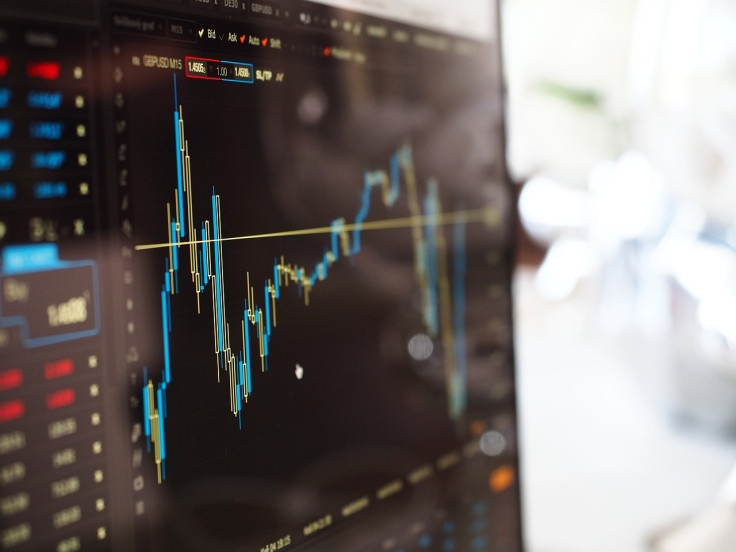Strategize Against Your FOMO
If you were a calf and saw your entire herd stampeding off into the distance, you'd likely feel you should join in too. After all, if everybody has agreed on this course of action, there must be good reason behind it. The truth, as any sage bull will tell you, is that the herd can be triggered by nothing more significant than a rumble of thunder.

But what about a "bull run" in the stock market? Surely that couldn't be sparked by a mere spasm of fear! After all, those involved are not cows, but intelligent human beings. Take a minute before answering because the S&P 500 gained 20% between October last year and mid-2023, qualifying as a bona fide bull market, when the only reason to go along with it, according to many opinions, was the fact everybody else was doing so.
This is the way Morgan Stanley's Lisa Shalett views the stock market euphoria that has held sway in recent months. All the bullish sentiment, she says, ignores "significant risks: sticky inflation, higher-for-longer interest rates, declining corporate earnings and tightening market liquidity". Another sober observer, Hans Olsen of Fiduciary Trust Co., reminds us that the inverted yield curve signal puts the risk of an imminent recession "pretty high".
The popular word for this phenomenon is FOMO: the fear of missing out. If you're wondering why we needed a new word for an old fact, the answer is that, since the early years of the twenty-first century, this emotion was harnessed in an entirely new way. With the advent of social media, it became possible – even addictive – to expose oneself to what a large range of people at locations all around the globe were doing, thinking, eating, and feeling. (Well, at least what they claim to be doing, thinking, eating, and feeling.) Since then, that feeling in our hearts that other people know more, enjoy more, progress more, and earn more than we do has been powered by a new tool.
But how could the flighty forces of emotion overcome the dictates of cold, hard reason? And is there any way to escape the clutches of FOMO?
HFSP!
Analysts have noted some unique phenomena in social media communities. For instance, some of them communicate in an unusual jargon, whether it's about money matters or simply saying good morning. Concerns surround what the new language signifies in context. Acceptance into the communities is often contingent on sharing certain beliefs about how to manage one's finances. Crypto communities have tended to ostracize and even insult participants who doubt those assets' wondrous potential to generate wealth.
Users who hesitate may find themselves insulted with the term HFSP (Have fun staying poor) or told plainly that they are NGMI (not going to make it). Notably, the language makes clear that, in order to merit the approval of the group, one should strongly desire to become rich, on the one hand, and submit to a kind of "belief" in a particular asset's power to make that happen, on the other. People who want to research the asset's fundamentals before committing, which is standard procedure in any financial decision, have sometimes been met with downright hostility. Somehow, social media has melded together our need for group approval with our financial decisions.
Is it FOMO?
The ostensible bases for the late bull run on the stock market are also facts – of a kind. Data in June showed that jobs growth in the US was strong in May, (even though unemployment was at its highest in seven months). July data showed the economy was growing and inflation was falling. In addition, the resolution of the dramatic debt ceiling crisis restored some lost trading confidence, and lots of people have been convinced the Fed is about to put an end to their hawkishness.
The bears, however, dismiss these arguments as biased. "FOMO is in full swing", remarked JP Morgan's Marko Kolanovic in July. "There is complacency being built into stocks with VIX at the lows of its range", he added, referring to the CBOE Volatility Index, which is a gauge of stock trading fear. Kathy Jones of Charles Schwab notes that the normal result of the Fed's aggressive rate-tightening would be an economic slowdown, which has yet to manifest. Kolanovic says the stock market has not absorbed the interest-rate shock, so people should brace themselves for a dip.
Wrapping Up
"Younger people are considerably more at risk (of FOMO) due to their increased amount of time spent online coupled with a heightened... need for social approval and belongingness", says Harvard's Natalie Christine Dattilo.
In this regard, experts suggest limiting the stretches of time we spend on social media apps. Rashmi Parmar, MD. of Mindpath Health encourages us to take a "JOMO (joy of missing out) approach by focusing on contentment and satisfaction with who you are".





















